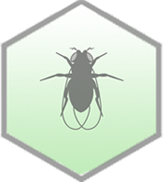COX1 / Q0045 Overview
- Standard Name
- COX1 1
- Systematic Name
- Q0045
- SGD ID
- SGD:S000007260
- Aliases
- OXI3 1
- Feature Type
- ORF , Verified
- Description
- Subunit I of cytochrome c oxidase (Complex IV); Complex IV is the terminal member of the mitochondrial inner membrane electron transport chain; one of three mitochondrially-encoded subunits; number of introns in different strains varies from 2 to 8, with most strains having 4-6 introns 2 3
- Name Description
- Cytochrome c OXidase 1
- Comparative Info
-






Sequence
The S. cerevisiae Reference Genome sequence is derived from laboratory strain S288C. Download DNA or protein sequence, view genomic context and coordinates. Click "Sequence Details" to view all sequence information for this locus, including that for other strains.
Analyze Sequence
S288C only
BLASTN | BLASTP | Design Primers | Restriction Fragment Map | Restriction Fragment Sizes | Six-Frame Translation
S288C vs. other species
BLASTN vs. fungi | BLASTP at NCBI | BLASTP vs. fungi
S288C vs. other strains
Protein
Basic sequence-derived (length, molecular weight, isoelectric point) and experimentally-determined (median abundance, median absolute deviation) protein information. Click "Protein Details" for further information about the protein such as half-life, abundance, domains, domains shared with other proteins, protein sequence retrieval for various strains, physico-chemical properties, protein modification sites, and external identifiers for the protein.
- Length (a.a.)
- 534
- Mol. Weight (Da)
- 58795.3
- Isoelectric Point
- 7.12
- Median Abundance (molecules/cell)
- 2440 +/- 1458
- Half-life (hr)
- >= 100
Alleles
Curated mutant alleles for the specified gene, listed alphabetically. Click on the allele name to open the allele page. Click "SGD search" to view all alleles in search results.
View all COX1 alleles in SGD search
Gene Ontology
GO Annotations consist of four mandatory components: a gene product, a term from one of the three Gene Ontology (GO) controlled vocabularies (Molecular Function, Biological Process, and Cellular Component), a reference, and an evidence code. SGD has manually curated and high-throughput GO Annotations, both derived from the literature, as well as computational, or predicted, annotations. Click "Gene Ontology Details" to view all GO information and evidence for this locus as well as biological processes it shares with other genes.
- Summary
- Subunit of mitochondrial respiratory chain complex IV involved in aerobic respiration and mitochondrial electron transport
View computational annotations
Molecular Function
- Manually Curated
- contributes to cytochrome-c oxidase activity (IDA)
Biological Process
- Manually Curated
- involved in aerobic respiration (IMP)
- involved in mitochondrial electron transport, cytochrome c to oxygen (IDA)
Cellular Component
- Manually Curated
- located in mitochondrion (HDA)
- part of respiratory chain complex IV (IDA)
Complex
Macromolecular complex annotations are imported from the Complex Portal. These annotations have been derived from physical molecular interaction evidence extracted from the literature and cross-referenced in the entry, or by curator inference from information on homologs in closely related species or by inference from scientific background.
Pathways
Phenotype
Phenotype annotations for a gene are curated single mutant phenotypes that require an observable (e.g., "cell shape"), a qualifier (e.g., "abnormal"), a mutant type (e.g., null), strain background, and a reference. In addition, annotations are classified as classical genetics or high-throughput (e.g., large scale survey, systematic mutation set). Whenever possible, allele information and additional details are provided. Click "Phenotype Details" to view all phenotype annotations and evidence for this locus as well as phenotypes it shares with other genes.
- Summary
- Non-essential gene; null mutant is unable to utilize nonfermentable carbon sources such as glycerol and ethanol, and makes smaller colonies on glucose plates (petite phenotype)
Classical Genetics
- null
- reduction of function
Interaction
Interaction annotations are curated by BioGRID and include physical or genetic interactions observed between at least two genes. An interaction annotation is composed of the interaction type, name of the interactor, assay type (e.g., Two-Hybrid), annotation type (e.g., manual or high-throughput), and a reference, as well as other experimental details. Click "Interaction Details" to view all interaction annotations and evidence for this locus, including an interaction visualization.
160 total interactions for 74 unique genes
Physical Interactions
- Affinity Capture-MS: 42
- Affinity Capture-RNA: 4
- Affinity Capture-Western: 71
- Co-fractionation: 9
- Co-purification: 8
- Protein-RNA: 1
- Reconstituted Complex: 5
Genetic Interactions
- Dosage Rescue: 4
- Phenotypic Enhancement: 1
- Synthetic Lethality: 11
- Synthetic Rescue: 4
Regulation
The number of putative Regulators (genes that regulate it) and Targets (genes it regulates) for the given locus, based on experimental evidence. This evidence includes data generated through high-throughput techniques. Click "Regulation Details" to view all regulation annotations, shared GO enrichment among regulation Targets, and a regulator/target diagram for the locus.
No regulation data available.
Expression
Expression data are derived from records contained in the Gene Expression Omnibus (GEO), and are first log2 transformed and normalized. Referenced datasets may contain one or more condition(s), and as a result there may be a greater number of conditions than datasets represented in a single clickable histogram bar. The histogram division at 0.0 separates the down-regulated (green) conditions and datasets from those that are up-regulated (red). Click "Expression Details" to view all expression annotations and details for this locus, including a visualization of genes that share a similar expression pattern.
Summary Paragraph
A summary of the locus, written by SGD Biocurators following a thorough review of the literature. Links to gene names and curated GO terms are included within the Summary Paragraphs.
Last Updated: 2006-08-18
Literature
All manually curated literature for the specified gene, organized into topics according to their relevance to the gene (Primary Literature, Additional Literature, or Review). Click "Literature Details" to view all literature information for this locus, including shared literature between genes.